Gary Lucas has been described as “The Thinking Man’s Guitar Hero” by The New Yorker, a “Guitarist of 1000 Ideas” by The New York Times, and a “legendary leftfield guitarist” by The Guardian (UK). He first gained acclaim for his work with Captain Beefheart (aka Don Van Vliet), appearing on Beefheart’s 1980 album Doc at the Radar Station and 1982’s Ice Cream for Crow. Lucas was also Van Vliet’s manager during this time. He has since released solo albums – the first being 1990’s Skeleton at the Feast featuring effect-heavy interstellar guitar instrumentals – and albums with his band Gods and Monsters, whose ranks once included Jeff Buckley. He has worked with many other artists, and was nominated for a Grammy for co-writing Joan Osborne’s song “Spider Web”.
The Gary Lucas & Gods and Monsters album The Ordeal of Civility will be released on Knitting Factory Records on May 10, 2011. This album is not just for fans of avant guitar – definitely worth checking out!
This interview was conducted by email, with responses received March 1, 2011. Lucas responded from La Habana, Cuba.
Jeff Moehlis: I’ve really been enjoying the new Gary Lucas & Gods and Monsters album The Ordeal of Civility. Could you give your reflections on this album for those who haven’t had the chance yet to hear it?
Gary Lucas: Sure–I think it is head and shoulders the best Gods and Monsters album yet, Gods and Monsters being my avant-rock jamband based in NYC. I have worked under this group name since 1989 when I put the first version of the band together, which originally was all instrumental and more jazz-rock and sported two bass players. Originally the band concept was more a collective featuring a revolving cast of special guests, kind of like The Golden Palominos. But I then began writing my own original songs in 1990 the first manifestation of which appeared on my album Gary Lucas “Gods and Monsters” which was released on Enemy in 1992 and received 4 stars in Rolling Stone. And I tightened up the group around my songwriting and guitar playing and a more stable lineup which went through several iterations–perhaps the best known by the mass audience being the period when Jeff Buckley was in the band as lead singer and second guitarist in 1991. The current lineup makes the band a real post-punk supergroup featuring Ernie Brooks from the Modern Lovers on bass and Bily Ficca from Television on drums, plus a horn section of Jason Candler and Joe Hendel, who also plays keyboards. I have operated with this same lineup for the last seven years or so and have toured them extensively in Europe: http://garylucas.com/www/gods
JM: What did producer Jerry Harrison bring to this album?
GL: Bringing Jerry Harrison from Talking Heads into the fold to produce and play on the album was another nice touch to further strengthen the band this time out. Jerry is a great guy work with and to have on board at the controls and possesses extremely sharp ears and a real avant-pop sensibility from his time in Talking Heads. Plus he has serious production skills having worked on some massive albums as producer post-Talking Heads (O.A.R., Live). We wanted someone who could capture the epic nature of the band’s attack sonically and also make a warm, user friendly album of great songs –I am very much about songs, as a Grammy-nominated songwriter I should be!– that couldn’t be ignored. [Lucas was nominated for a Grammy for co-writing Joan Osborne’s song “Spider Web”]
JM: The track “Jedwabne” is particularly haunting. Can you fill me in on that song?
GL: Yes. That song commemorates the infamous pogrom in Jedwabne Poland in July 1941 in which the entire Jewish community, who had lived peacefully alongside their neighbors for hundreds of years, was herded en masse by their Christian brethren into a barn on a summer day which was then set on fire. My relatives on my mother’s side were in that barn, and I used to hear this story about this dark tragedy from my mother when I would ask her as a boy why we had no surviving relatives in Europe on her side of the family. In the late 90’s a book entitled “Neighbors” was published written by the Polish American Princeton-based historian Jan Gross telling the true story with hitherto hidden details of this atrocity which caused a furor in Poland upon publication and which was denounced as lies and propaganda by the Catholic Church there. The then-president of Poland however realizing the awful truth of the book and its underlying message about the deep stain of Polish anti-Semitism invited surviving Jewish family members from all over the world whose relatives hailed from Jedwabne back to Poland as an official gesture of apology and attempt at reconciliation by the government, and I attended the ceremonies in Jedwabne and Warsaw representing my family. It was a very sad, very emotional and very cathartic experience, and I determined to write a song about it so that people would not forget what happened in 1941, ever.
JM: As usual, the guitar on this album is stellar. What is the main gear that you are using these days?
GL: A 1966 Fender Stratocaster and a 1946 Gibson J-45 acoustic. I love vintage guitars although I am not a huge collector, I think they should be played more than gazed upon.
Plus an arcane assortment of various fx, mainly analog.
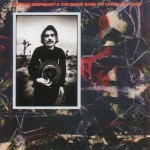
JM: You have recently organized several Captain Beefheart Symposia, honoring the art of the recently deceased Don Van Vliet. How have these gone?
GL: Really well. I started doing these last year before he died on my own initiative as I determined that he had sadly pretty much fallen off the map in the evanescent historical consciousness of music and art lovers, particularly the new generation, and I wasn’t about to let that stand. As I still firmly believe he is one of the seminal figures in the history of music and changed the face of it forever over several ground-breaking albums. And folks need reminding of that fact, of just what kind of giant once walked the earth. It astonishes me for instance that he has not yet been inducted into the Rock ‘n Roll Hall of Fame, as if anyone deserves to sit at that table it surely is Don Van Viiet. Since he died I have received the full blessings of his family to continue on my mission to spread the word about the man’s fantastic oeuvre, not just in music but in painting, poetry and sculpture. The man was a force of nature.
JM: Could you describe how you came to be involved professionally with Captain Beefheart?
GL: Yes I saw him perform his first show in NYC in early 1971 at a little club in Manhattan. I had never seen anything remotely like it. And I vowed to myself that night that if I ever did anything in music I would play with this man. As it was that strong and that forceful. It was a real turning point in my life seeing that concert.
JM: What was it like working with Van Vliet?
GL: It could be total ecstasy on a good day and total misery on another, as he was prone to radical mood swings. His dictatorial approach as a band leader has been well documented over the years, but these are old stories now and for me beside the point as they tend to obscure the impact of the musical experience itself, which is peerless and transcendental. It sounds like nothing that was ever composed and recorded by anyone preciously or hitherto. I prefer to concentrate on the positive aspects, which were truly magical than to dwell on the negative ones.
JM: How would you describe Van Vliet’s approach to composing music?
GL: He approached it as a sculptor. He threw out ideas prodigiously, either playing parts on the piano, scat singing, whistliing, and through allusive verbal metaphor–and then chiseled, honed and refined the raw material and shaped it exactly as he wanted through the vehicle of the band right up to the last minute before recording it.
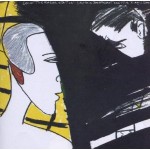
JM: Could you reflect on the piece “Flavour Bud Living”, from Doc at the Radar Station?
GL: Yes, it was originally recorded in a very slow version by John French on guitar for the album “Bat Chain Puller” which has never been officially released. He sent me a tape of that to learn, it took me a long time to master and I had to really extend my technique on guitar to accomplish this. I got much more adept at fingerpicking and playing contrapuntal lines with the right hand for example. Then when I thought I had it down he then asked me to apply his “Exploding Note Theory” to it as he felt French had played it “too religiously”. Under his theory you were meant to play each note as if it the note had no relationship to the previous note or subsequent note. Kind of like bombs bursting in air.
JM: Why do you think that Van Vliet stopped making music?
GL: He hated the business, and felt he had said as much as he wanted to say over the albums he had put out. He also wanted to concentrate on being a painter full time, and believed no one would take him seriously as Don Van Vliet the artist if he continued also making music under the name Captain Beefheart.
JM: Did you stay in touch with Van Vliet after his attention shifted to painting?
GL: Yes, I helped get him set up to have art exhibitions in NYC through introducing him to the painter Julian Schnabel and also to Mary Boone, a prominent NYC art dealer and to Michael Werner who owned a prestigious gallery in Cologne Germany which took him on, and then formally resigned when it became clear Don didn’t want to record or make music more. Which he could have, as Virgin was ready to roll a third album if he’d wanted to record one.
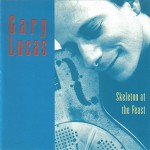
JM: What did you do between the end of Captain Beefheart and the Magic Band and your amazing first solo album, Skeleton at the Feast?
GL: I got actively involved again playing sessions with UK indie band The Woodentops, producer Adrian Sherwood, and the US singer songwriter Matthew Sweet. I also produced album for saxophonist/composers Peter Gordon and Tim Berne for CBS Masterworks and Columbia Records respectively. I also did A&R for the indie label Upside Records signing artists such as the late Arthur Russell and Mark Stewart. I was pretty busy!
JM: Your band Gods and Monsters briefly had Jeff Buckley in its ranks. How did that come about?
GL: I met Jeff at a tribute to his father Tim Buckley that the producer Hal Willner invited me to participate in in ’91. Hal suggested I be a good collaborator with Jeff–he was right! Jeff came up to me full of praise for my work with Beefheart and playing in general and I invited him over to my apartment to work on one of his dad’s songs. My jaw dropped when I heard him sing! And I quickly decided that he was someone I wanted to work with, the same way I felt when I first saw Beefheart perform.
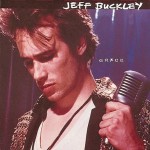
JM: You co-wrote the songs “Grace” and “Mojo Pin” with Buckley, which kicked off his acclaimed album Grace. Could you reflect on these songs?
GL: Yes, I think they are among my best collaborations and they encapsulate the sound we were striving for when we first got together. We agreed when we first started hanging out together that we loved classic rock bands such as The Smiths, the Doors and Led Zeppelin, but were looking to update the sound and format, which I think these songs do very well. They are both little epics in miniature and they both really tell a story musically and lyrically that is essentially bittersweet, which I think is the key to their popularity, people hear the truth in them that reflects on and relates to their own experiences. They are both very much about the pain and joy of living. And it gives me an amazing feeling to hear from folks from all over the world to this day how moved they are by these songs. I guess we were doing something right.
JM: How would you describe the Jeff Buckley that you knew?
GL: The most brilliant and gifted young musician I ever worked with. Profoundly sensitive, charismatic, loving and gentle. And funny–very very funny. He could light up a room with his smile. The best collaborator I ever had. I would give him my finished original solo guitar instrumentals and he would come back every time with a perfect melody and lyrics that would fit over them live a glove. That is how we worked always.
JM: You have also worked with a couple of my favorites: Lou Reed, and the Plastic People of the Universe. Could you describe these experiences?
GL: Yes, Lou and I bonded at John Zorn’s Festival of Radical Jewish Culture in Munich in 1992 where I was performing with “The Golem” film, and we hung out in this period afterwards. I jammed with him and he told me “I could listen to you play for hours Gary!” He invited me to perform with him and I played all of Lou’s signature songs with him in a trio with bassist Rob Wasserman at a Christmas party at Big Mike’s Studios here in NYC that year. He later described my playing on “Grace” as “just lovely” and a version I did of his Velvet Underground opus “European Son” as “beyond cool”.
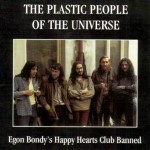
I met Vrat Brabenec, saxophonist with the Plastic People, one of my favorite bands, at a Tribute the impresario/producer Giorgio Gomelsky held for them at The Kitchen in NYC in 1989, and later the entire band came to hear me perform in their hometown of Prague in 1995 when I was performing in the Czech Republic solo. They love my playing and consider me one of them because of my Bohemian roots and the fact that I was one of Beefheart’s guitarists, who is their big hero along with Frank Zappa. I have sat in with them at subsequent shows here at Irving Plaza and the Knitting Factory, and will perform with them in Bad Doberan German at the annual Zappanale this August.
JM: How would you say that your guitar playing and music have evolved over the years?
GL: I feel I have established an original sound and voice on the instrument that is unique to me. I don’t think you would mistake my work for anyone else’s playing if you have ears.
JM: What are your plans, musical or otherwise, for the near future?
GL: I am currently working on a new album here in Havana where I am writing this to you with Cuban pop stars Haydee and Suylen Milanes and a slew of young Cuban musicians. We are doing a really amazing version of “Grace” on the album amongst other things.
I have a new album ready for release of my Wild Rumpus project (my electronica duo with DJ Cosmo a/k/a Colleen Murphy, the UK based dj), we have released several 12 inch singles on vinyl in the last couple years which all sold out their pressings in a couple days, you can read and hear more of us at http://garylucas.com/www/wildr
I also have several solo albums in the can ready to go but not sure when exactly, one is an album of my solo guitar versions of Czech classical music by Dvorak, Smetana, Janacek and the Plastic People that was commissioned for the 14th anniversary of their Velvet Revolution by the Czech UN Ambassador. I am mounting a production based on my album of 30’s Chinese pop “The Edge of Heaven” at the Holland Festival in Amsterdam in June with Gods and Monsters as the house band and two amazing female divas I auditioned in Shanghai last summer. I hope to release versions of my new live film scores accompanying Spanish “Dracula” http://garylucas.com/www/dracula and Jose Mojica Marins’ “This Night I Will Posess Your Corpse”
http://garylucas.com/www/cadaver on dvd also.
Mainly I aim to do more of everything: release more albums, and tour more places in the world. To date I have played in over 40 countries including China, India, Brazil, Costa Rica, Mexico, Colombia, Romania and so on.
JM: Do you want to set the record straight on anything about your music or career?
GL: No I think my music and my CV speaks for itself: http://garylucas.com/www/bio
JM: What advice would you give to an aspiring musician?
GL: If you really want to make music for a living, go for it! And don’t give up as difficult as it gets, you have to pay your dues to succeed in it like everything else that’s worth doing or attaining.
Gary Lucas & Gods and Monsters

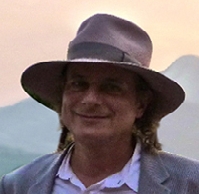
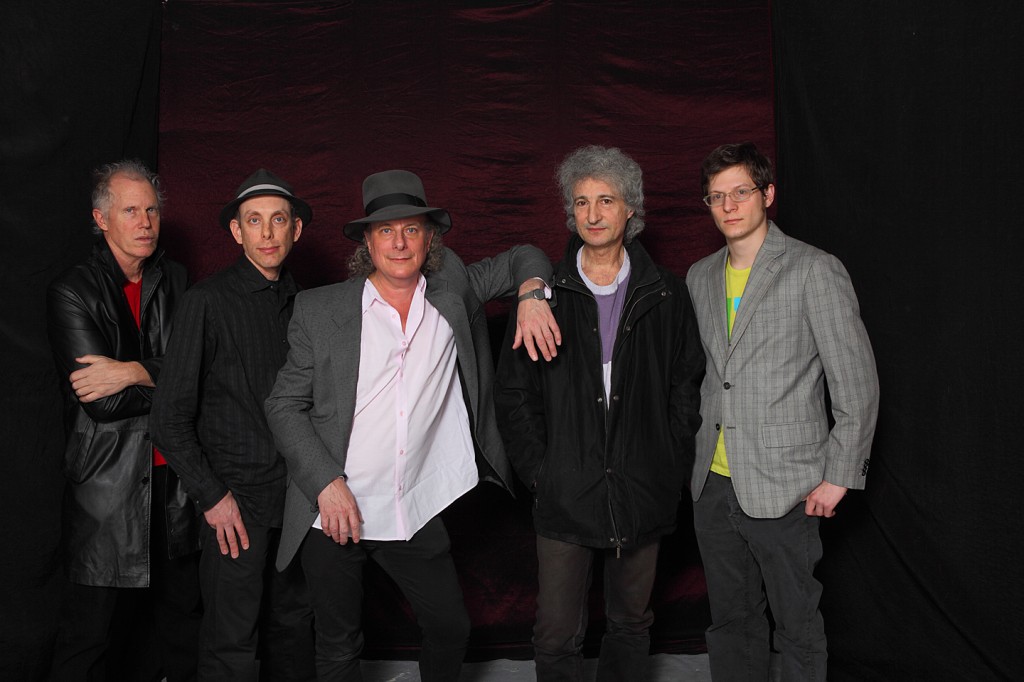
Discussion
No comments for “Interview: Gary Lucas”